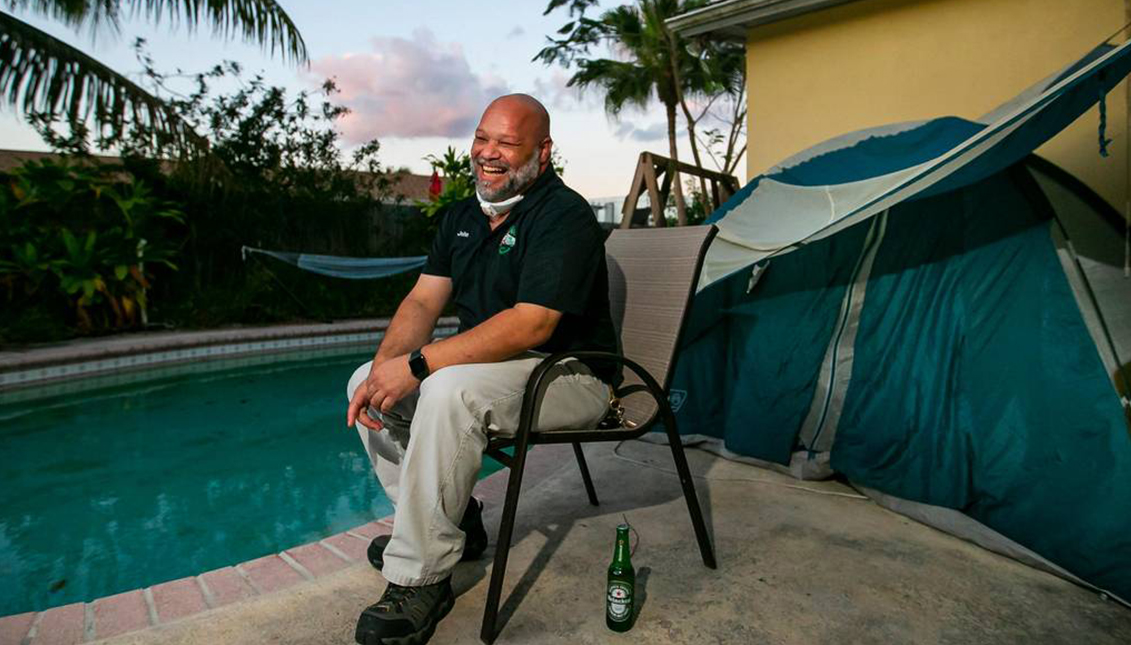
John Delgado, the man who camped in his yard to avoid infecting his family with COVID-19
He wanted to be part of the solution and not part of the problem, which forced him to make a hard decision, and he wasn't even sick.
Sitting on a chair on the terrace of his house, John Delgado (52) drinks a Heineken while contemplating the Florida sun faint on the horizon.
He has three children, a two-year-old grandson, a wife with heart problems and an 84-year-old mother-in-law who suffers from Alzheimer's. They all live together in the same house with a pool, except for Delgado, a Farm Share food bank employee, who has been camping out in the yard for weeks without being able to hug his family for pure responsibility.
"I'd rather take this on to keep my family safe," he told the Miami Herald. "I can't make my family sick. I have too much to lose."
It's nothing exceptional, he said. Neither his decision to camp out to protect his family nor his involvement with a charity that provides free food to thousands of people seems heroic to him.
At the end of the day, it's our choices that make us who we are.
Born in New Jersey, but raised in Liberty City, Miami, John Delgado spent his youth running with gangs. He was shot up to five times, nearly died and ended up in a maximum-security prison.
When he got out, he took another course in life.
John Delgado has been working for food banks for more than a decade, and before that, he was handing out needles to people with drug problems and condoms to HIV patients, as well as distributing bags of food to the homeless. He knows how far a hungry person can go - "To keep the country calm, we have to let people know that there are places where they can get food. If there is panic and there is no place to eat, what will happen," he gravely stated.
A few weeks ago, when John was taking a flight back from Jacksonville, where he had traveled for work, the stewardess passed by him coughing and a passenger whispered to his companion that she might be infected with coronavirus.
RELATED CONTENT
The thought stuck in his head. He arrived home, called his wife and told her to open the back door.
Then he undressed, put his clothes in a garbage bag and took a shower with the hose from the yard.
Over dinner that night, he thought that if he was going to keep going to work and "be part of the solution," he had to find a way not to endanger his family.
The next day, he announced to Barbie, his wife, that he was going to sleep in a tent until the pandemic was over. She became enraged and scared, begging him to resign.
But John wasn't about to quit.
"I have to work or my family will be the one waiting for food," he concluded.
Today, food deliveries have increased, layoffs and business closures have also increased. Miami-Dade County has become an epicenter of the pandemic with more than 6,000 infected in a state that in the last few hours has already registered more than 19,300 cases.











LEAVE A COMMENT: